Search
Search Results

Definition
Steam Hammer
The steam hammer was developed in 1839 by the Scotsman James Nasmyth (also spelt Naysmyth, 1808-1890). Coming in a wide range of dimensions, the steam-powered machine was used to forge and shape very large pieces of metal for industrial use...
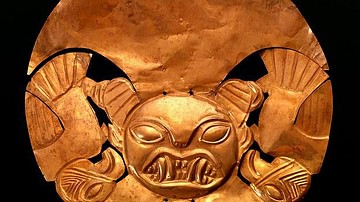
Definition
Moche Civilization
The Moche civilization (also known as the Mochica) flourished along the northern coast and valleys of ancient Peru, in particular, in the Chicama and Trujillo Valleys, between 1 CE and 800 CE. The Moche state spread to eventually cover an...
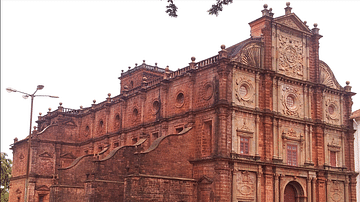
Definition
Portuguese Goa
Goa, located on the west coast of India, was a Portuguese colony from 1510 to 1961. The small coastal area was conquered by Afonso de Albuquerque (c. 1453-1515) and became an important trade hub for the Eastern spice trade. Goa was the capital...
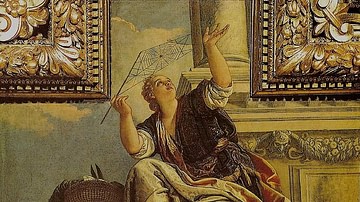
Definition
Arachne
Arachne, from the Greek arákhnē (meaning spider), is a figure in Greek mythology whose talent for weaving was renowned and who famously challenged the goddess Minerva to a weaving competition. As told in Ovid’s (43 BCE-17 CE) Metamorphoses...

Definition
Linear A Script
Linear A script was used by the Minoan civilization centred on Crete during the Bronze Age. Used from around 1850 to around 1450 BCE, the script has never been deciphered. Artefacts bearing Linear A script, most commonly clay tablets, have...
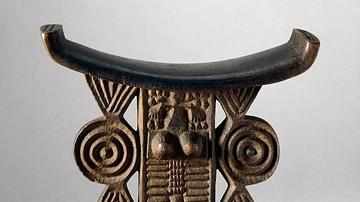
Definition
Mutapa
Mutapa (aka Matapa, Mwenemutapa, and Monomotapa) was a southern African kingdom located in the north of modern Zimbabwe along the Zambezi River which flourished between the mid-15th and mid-17th century CE. Although sometimes described as...
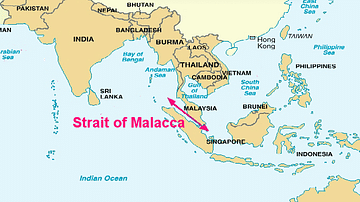
Definition
Portuguese Malacca
The Portuguese colonised Malacca (modern Melaka) on the southwest coast of the Malay peninsula from 1511 and kept it until 1641 when the Dutch took over. The port controlled the Malay Straits which lead from the Indian Ocean (the Andaman...
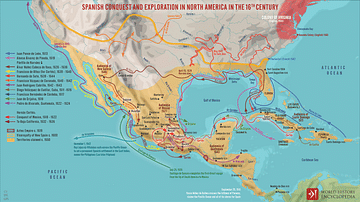
Definition
The Conquest of New Spain
The Conquest of New Spain by Bernal Díaz del Castillo (1492 to c. 1580) is an account written in 1568 of the early Spanish colonization of Mesoamerica, specifically the conquest of the Aztec civilization in Mexico from 1519 to 1521 when Díaz...
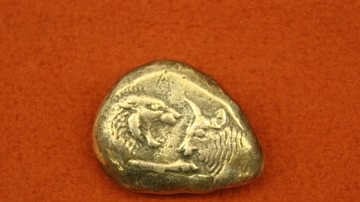
Definition
Lydia
Lydia was a region of western Asia Minor which prospered due to its natural resources and position on trading routes between the Mediterranean and Asia. The Kingdom of Lydia flourished in the 7th and 6th centuries BCE and expanded to its...

Definition
Susa
Susa was one of the oldest cities in the world and part of the site is still inhabited as Shush, Khuzestan Province, Iran. Excavations have uncovered evidence of continual habitation dating back to 4395 BCE but that early community grew from...